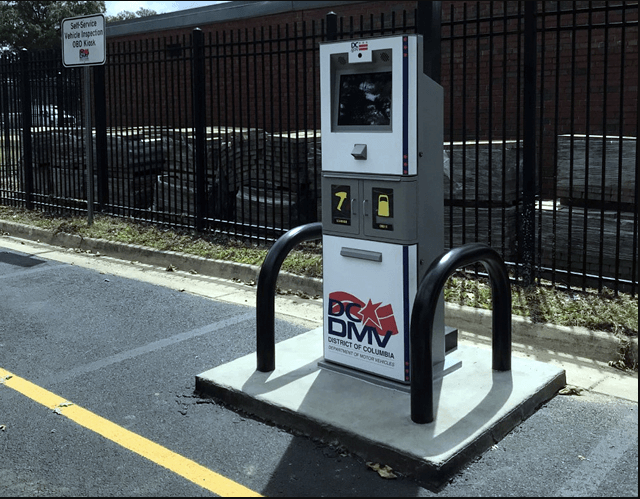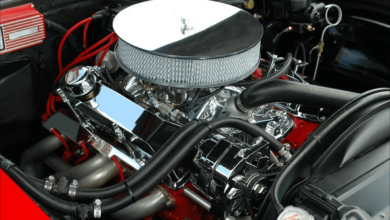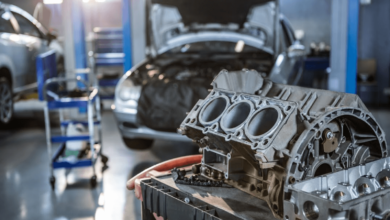DC Vehicle Inspection: What You Need To Know

Just because you bought a new car doesn’t mean it’s automatically in perfect condition. In fact, most new cars undergo a series of safety and emissions tests before they’re allowed on the road. One of these tests is called a DC vehicle inspection, and it’s important that you know what it is and what to expect. In this blog post, we will explore the basics of DC vehicles inspection and provide tips on how to prepare for it.
What Is A DC Vehicle Inspection?
A DC vehicle inspection is a required law in the District of Columbia. It’s also a good idea to get one every time your vehicle is serviced or replaced. Here’s what you need to know about a DC vehicles inspection:
What Is Required:
The District of Columbia requires that all vehicles operating in the district be inspected at least once a year, and every time the vehicle is serviced or replaced. The inspections must be performed by a licensed mechanic, and the results must be recorded on an inspection certificate.
What To Expect:
A DC vehicles inspection will usually include an evaluation of your car’s mechanical condition, with special attention paid to any repairs or replacements made since the last inspection. The inspector may also test drive your car and give you a list of any problems found. You can expect to pay around $50 for a complete DC vehicles inspection.
What To Expect at A DC Vehicles Inspection
If you’re planning to take your car for a DC vehicles inspection, you’ll need to know what to expect. This guide will teach you everything from the required documents and preparations you’ll need to make beforehand, to the specific steps involved in getting your car inspected.
First and foremost, you’ll need to gather all the required documentation. This includes your driver’s license, registration, proof of insurance, and any applicable emissions test certificates. If you have a leased or rented vehicle, make sure to bring in the lease or rental agreement as well.
In addition to these mandatory items, it’s always helpful to have some extra copies of documents just in case something happens to your originals while you’re driving across town. A headset and copier are handy tools for making copies on-the-go.
Now that you’ve got all of your paperwork in order, it’s time to get your car ready for inspection. Start by checking fluid levels and brakes: both of which should be at optimal levels before taking your car in for an inspection. Next, verify that all emergency equipment is working properly by testing the horn and lights. If there are any issues with these accessories, make note of them so that they can be corrected prior to taking your car in for inspection.
Finally, it’s time for the big reveal – open up all windows and doors on both the driver’s side and passenger side of the car (note: if it’s wintertime outside and/
How Much Does It Cost?
Vehicle inspections in the District of Columbia are required by law. The D.C. Department of Motor Vehicles (DMV) requires all vehicles registered in the district to undergo an inspection, including both personal and rental vehicles. The inspection process is simple: bring your vehicle to a DMV office with your current registration, proof of insurance, and a valid driver’s license.
The cost for the inspection is $8 for residents, $11 for non-residents, and $4 for each household member over 18 years old. For more information on what to bring to the DMV, check out this guide from the DMV website.
What Are The Benefits of A DC Vehicles Inspection?
There are many benefits of having a professional DC vehicles inspection done. A properly done inspection can help you avoid costly repairs or future accidents. A DC vehicles inspection can also identify any potential safety issues with your car. Here are the top five benefits of having a professional DC vehicles inspection done:
1. Avoid expensive repairs or future accidents.
A professional DC vehicles inspection will help you identify any potential safety issues with your car. If there are any problems that need to be fixed, it will be much cheaper to do so before they cause a major accident.
2. Identify any defective parts.
A professional DC vehicles inspection will also help you identify any defective parts on your car. If there is something wrong with one of your car’s mechanicals, it is best to get it fixed before it causes a problem.
3. Get an accurate estimate for needed repairs/updates.
A professional DC vehicles inspection will provide you with an accurate estimate for the necessary repairs or updates on your car. This information can be helpful in making decisions about what needs to be done and when it needs to be done.
4. Get valuable advice about car care and maintenance tips for your specific type of car and driving conditions in which you regularly use the vehicle.” Read more…
Conclusion
So it is important that you know the basics of how to conduct a DC vehicle inspection. This article will outline the most important points to remember when conducting your own inspection. By following these tips, you can ensure that your car meets all safety and emissions standards.






